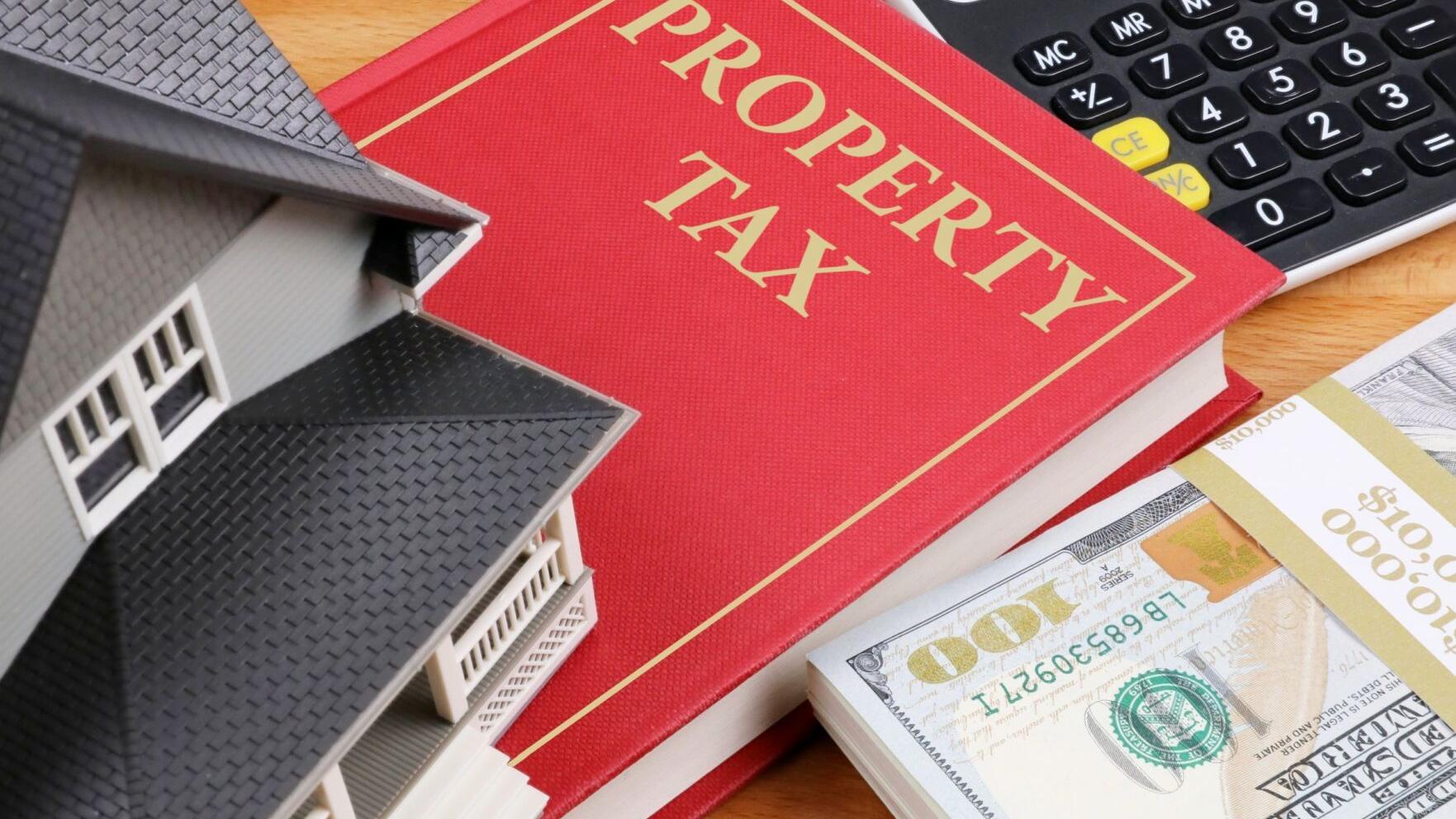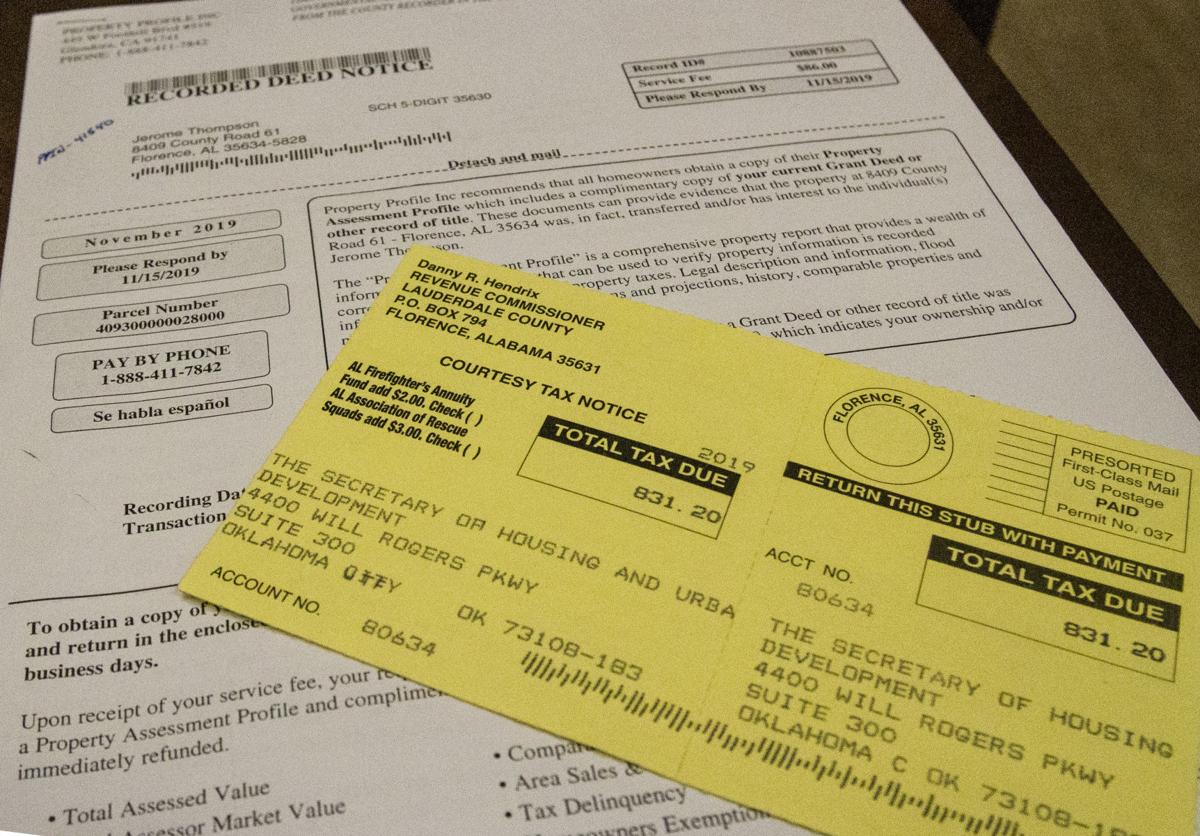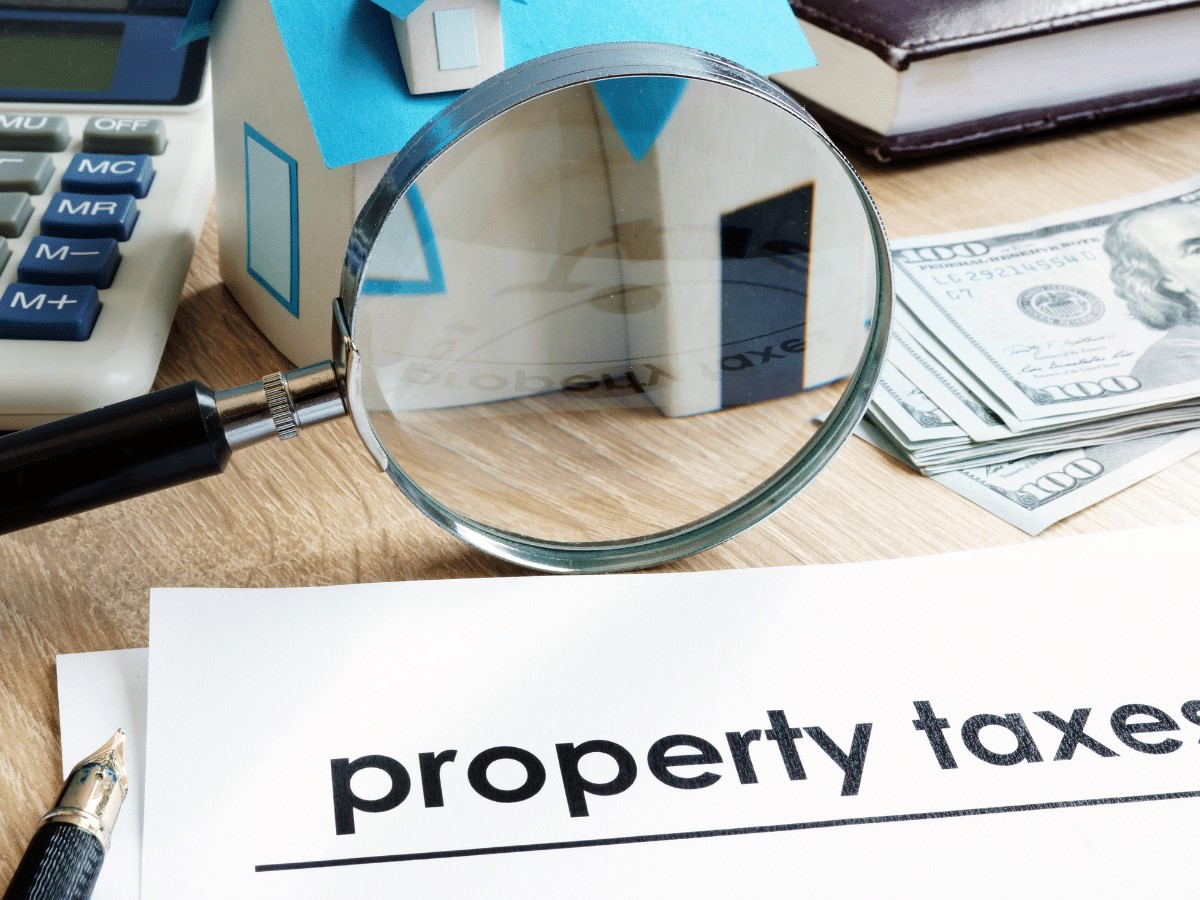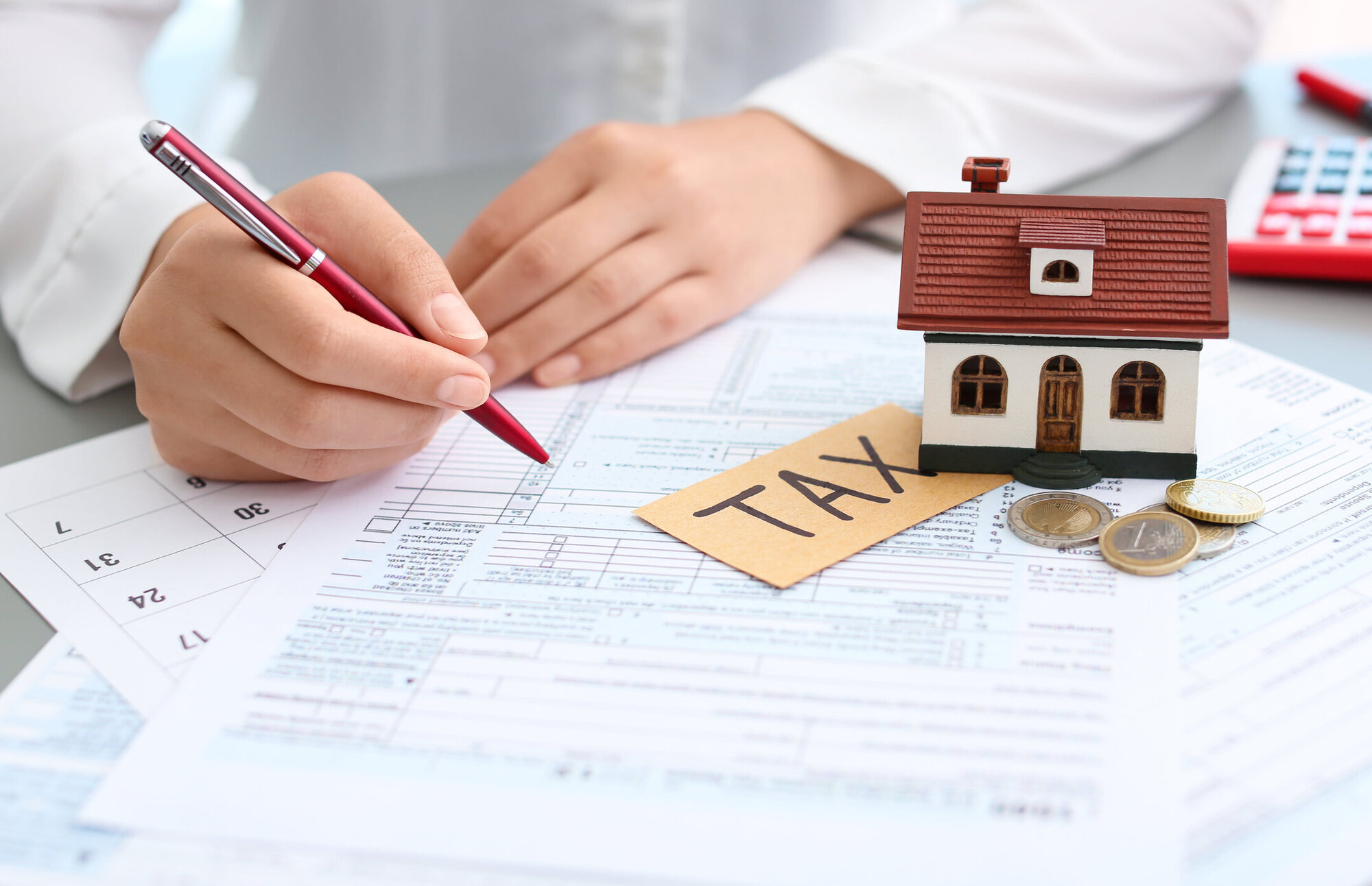Home>Home Maintenance>What Is Property Assessment


Home Maintenance
What Is Property Assessment
Modified: March 6, 2024
Learn about property assessment and how it impacts your home maintenance. Find out why understanding property assessment is crucial for homeowners.
(Many of the links in this article redirect to a specific reviewed product. Your purchase of these products through affiliate links helps to generate commission for Storables.com, at no extra cost. Learn more)
Introduction
Welcome to the world of property assessment! Whether you are a homeowner, a real estate investor, or simply someone curious about the value of properties, understanding property assessment is crucial. In this article, we will delve into the intricacies of property assessment, exploring its definition, purpose, process, factors considered, methods used, and overall importance.
Property assessment is a crucial aspect of the real estate industry. It plays a vital role in determining the value of a property for taxation purposes, mortgage lending, insurance, and investment decisions. By assessing the value of a property accurately, various stakeholders can make informed decisions and ensure fair treatment in financial transactions.
Throughout this article, we will break down the concept of property assessment into digestible pieces, providing clear explanations and insights into each aspect. Whether you are a first-time homeowner or a seasoned real estate professional, this article will equip you with the knowledge needed to navigate the world of property assessment with confidence.
So, let’s dive into the fascinating world of property assessment and uncover the key elements that contribute to the determination of a property’s value. By the end of this article, you will have a solid understanding of how property assessment works and why it matters in the realm of home maintenance and property management.
Key Takeaways:
- Property assessment determines a property’s value for taxes, loans, and insurance. It ensures fairness in tax payments and helps property owners make smart financial decisions.
- Assessors use factors like location, size, and market trends to accurately value properties. This helps maintain transparency and fairness in the real estate market.
Read more: What Is A Personal Property Assessment
Definition of Property Assessment
Property assessment refers to the process of evaluating the value of a property for taxation purposes or other financial considerations. It involves analyzing various factors such as location, size, condition, and comparable properties in the market to determine an accurate estimate of the property’s worth.
The assessment is typically conducted by a professional assessor or a government agency responsible for tax assessments. Their expertise and knowledge of the local real estate market allow them to assess properties fairly and accurately.
Property assessment is not to be confused with property appraisal, which is usually performed by a licensed appraiser and is usually an in-depth evaluation of a property’s value for mortgage purposes or sales transactions. While both assessments and appraisals aim to determine a property’s value, property assessments are primarily used for taxation purposes.
Property assessment is an essential function in local governments as it forms the basis for property tax calculations. The assessed value of a property is used to determine the amount of property tax that the owner is liable to pay. It ensures that property owners contribute their fair share towards the funding of local services such as schools, roads, and public infrastructure.
Furthermore, property assessment provides transparency and establishes a standardized framework for determining property values. This promotes fairness and equality among property owners, ensuring that similar properties are assessed in a consistent manner.
Overall, the definition of property assessment encompasses the evaluation of a property’s value and the subsequent determination of property taxes. It is a systematic process that ensures equity in tax collection and provides a foundation for various financial decisions related to real estate. Understanding the definition of property assessment is crucial for homeowners and investors alike, as it directly impacts their financial obligations and investment strategies.
Purpose of Property Assessment
The purpose of property assessment extends beyond determining the value of a property for taxation purposes. It serves as a foundation for various financial considerations and plays a significant role in the real estate industry. Here are the key purposes of property assessment:
- Taxation: Property assessment is primarily conducted to establish the assessed value of a property, which is then used to calculate property taxes. Local governments rely on property taxes to fund essential services and infrastructure developments. By assessing properties fairly and accurately, property owners can be assigned their fair share of tax liabilities, ensuring an equitable distribution of tax burdens.
- Mortgage Lending: Property assessment also plays a vital role in mortgage lending. Lenders rely on property assessments to determine the value of the property being used as collateral for a mortgage. The assessed value helps lenders assess the risk associated with the loan and determine the loan-to-value ratio. A reliable property assessment is essential for lenders to make informed lending decisions and ensure the protection of their investment.
- Insurance: Insurance companies use property assessment information to calculate insurance premiums. The assessed value of the property provides insurers with an understanding of the property’s replacement cost in case of damage or loss. Accurate property assessments help homeowners secure appropriate insurance coverage based on the property’s value, mitigating the risk of overpaying or being underinsured.
- Investment Decisions: Property assessment is crucial for real estate investors. Accurate assessments provide investors with insights into a property’s potential value appreciation and rental income potential. Assessments help investors compare properties and make informed decisions about purchasing, selling, or renting properties. Property assessments also assist in determining the return on investment and evaluating the profitability of real estate ventures.
- Market Analysis: Property assessment data serves as a valuable resource for conducting market analysis. It provides comprehensive information about property values, trends, and market dynamics. Real estate professionals, economists, and policymakers rely on property assessment data to analyze the performance of the real estate market, identify emerging trends, and make informed predictions about future market conditions.
The purpose of property assessment extends beyond tax estimation and encompasses various financial considerations, including mortgage lending, insurance, investment decisions, and market analysis. Understanding the purpose of property assessment allows property owners, investors, and other stakeholders to use assessment information effectively for decision-making and financial planning.
Process of Property Assessment
The process of property assessment involves several stages and steps to determine the value of a property accurately. While the specific details may vary depending on the jurisdiction and the organization responsible for the assessment, the general process typically follows these steps:
- Data Collection: The first step in the property assessment process is data collection. Assessors gather relevant information about the property, such as its location, size, zoning, and legal description. They may also collect data on the property’s physical features, such as the number of bedrooms, bathrooms, and any additional amenities or improvements.
- Market Analysis: Assessors conduct a thorough analysis of the local real estate market to gather insights into property values and market trends. They consider sales data of comparable properties (properties similar in terms of size, location, and condition) to identify market fluctuations and adjust the property’s value accordingly.
- Property Inspection: Assessors may conduct physical inspections of the property to assess its condition and identify any significant improvements or factors that may affect its value. This step is particularly important for properties that have undergone recent renovations, additions, or significant changes that may not be evident from the available data.
- Valuation: Using the collected data, market analysis, and property inspection findings, assessors determine the value of the property. They employ various approaches to valuation, such as the cost approach (evaluating replacement or reproduction costs), income approach (assessing the property’s income potential), or the sales comparison approach (comparing the property to similar properties recently sold in the area).
- Review and Finalization: Once the valuation is completed, the assessment is reviewed to ensure accuracy and adherence to applicable assessment standards and guidelines. Any errors or discrepancies are corrected, and the final assessed value is determined.
- Notice of Assessment: The property owner is then notified of the assessment results through a Notice of Assessment. This notice includes details about the property’s assessed value, the applicable tax rate, and any assessment-related information such as appeal procedures or deadlines.
It is important to note that property assessment is an ongoing process, with assessments typically conducted at regular intervals, such as annually or every few years. This ensures that property values remain up-to-date and reflective of current market conditions.
By following a systematic and comprehensive process, property assessments provide a fair and accurate determination of a property’s value. This process ensures transparency, consistency, and equity in property taxation and allows property owners to understand the basis on which their property’s value is assessed.
When understanding property assessment, it’s important to know that it is the process of determining the value of a property for tax purposes. This value is used to calculate property taxes, so it’s important to understand how it’s determined and how it can impact your finances.
Factors Considered in Property Assessment
Property assessment involves considering various factors that contribute to the determination of a property’s value. Assessors take into account both objective and subjective factors to ensure a fair and accurate assessment. Here are the key factors that are typically considered in property assessment:
- Location: The location of a property is a significant factor in its assessment. Assessors evaluate factors such as proximity to amenities, schools, transportation, and desirable neighborhoods. Properties located in prime areas tend to have higher assessed values due to their desirability and potential for appreciation.
- Size and Property Type: The size of the property, including the land area and the square footage of the buildings, is a crucial consideration. Larger properties generally have higher assessed values. Furthermore, the property type, whether residential, commercial, or industrial, influences the assessment as different property types have varying market values and income potential.
- Condition: The condition of a property plays a vital role in its assessment. Assessors take into account the overall state of the property, including its structural integrity, age, maintenance level, and any recent renovations or improvements. Properties in excellent condition tend to have higher assessed values, while those in poor condition may have lower values.
- Comparable Sales: Assessors compare the subject property to recent sales of similar properties in the area. This method, known as the sales comparison approach, allows for an objective assessment based on market trends and actual transactions. Factors considered include the sale price, size, location, and condition of comparable properties.
- Income Potential: For income-generating properties, assessors consider the property’s income potential. This is particularly relevant for commercial or rental properties, where the assessment is based on the estimated rental income the property can generate. Factors such as vacancy rates, market rental rates, and operating expenses are taken into account to determine the property’s value.
- Zoning and Land Use: The zoning regulations and land use designations assigned to a property are considered in its assessment. Assessors evaluate whether the property is being used appropriately according to local zoning ordinances and whether its current use aligns with its highest and best use. Zoning restrictions and permitted land uses can impact the property’s assessed value.
- Market Trends: Assessors analyze local market trends, including supply and demand dynamics, economic conditions, and changes in property values. This information helps determine if adjustments need to be made to the assessed value based on current market conditions.
By considering these factors, assessors aim to determine the most accurate value of a property. Each factor contributes to the overall assessment and ensures that properties are evaluated fairly and consistently.
It is important to note that the weight given to each factor may vary depending on the jurisdiction and the specific property being assessed. Understanding the factors considered in property assessment allows property owners to have a better grasp of how their property’s value is determined and how they can potentially influence it through improvements and maintenance.
Read more: What Is A Property Assessment Notice
Methods Used in Property Assessment
Property assessment involves the use of various methods to determine the value of a property accurately. These methods take into account different aspects of the property and its surrounding market. Here are the key methods commonly used in property assessment:
- Sales Comparison Approach: The sales comparison approach is one of the most common methods used in property assessment. Assessors compare the subject property to recently sold comparable properties in the area. Factors such as size, location, condition, and amenities are taken into account to determine the value based on market trends and actual transactions.
- Cost Approach: The cost approach method assesses the value of a property based on the cost of replacing or reproducing the property. Assessors consider factors such as land value, construction costs, depreciation, and improvements. This method is commonly used for newer properties or unique properties where there may not be sufficient comparable sales data.
- Income Approach: The income approach method is primarily used for properties that generate income, such as rental properties or commercial properties. Assessors estimate the potential income the property can generate and calculate its value based on expected returns. Factors such as market rental rates, vacancy rates, and property expenses are considered in this method.
- Mass Appraisal: Mass appraisal is a method used to assess multiple properties simultaneously, typically employed by government agencies for property tax assessments. This method relies on analyzing statistical data, market trends, and property characteristics to determine the assessed value of properties efficiently and consistently.
- Reassessment: Reassessment is a method used to update property assessments periodically. Assessors review and reassess the value of properties at defined intervals to ensure they reflect current market conditions. Reassessment may involve a combination of the methods mentioned above, as well as data analysis, property inspections, and market research.
It is important to note that the methods used in property assessment may vary depending on the jurisdiction and the specific circumstances of the property being assessed. Assessors may employ a combination of methods or adapt their approach based on the property type, market conditions, and available data.
By utilizing these methods, assessors aim to accurately determine the value of a property by considering various factors and market dynamics. Understanding the methods used in property assessment allows property owners to comprehend how their property’s value is derived and how they can potentially influence it through improvements or income-generating strategies.
Importance of Property Assessment
Property assessment holds significant importance in the realm of home maintenance and property management. It serves various purposes and provides numerous benefits to property owners, investors, and local governments. Here are the key reasons why property assessment is crucial:
- Equitable Taxation: Property assessment is essential for fair and equitable taxation. It ensures that property owners contribute their fair share of property taxes based on the assessed value of their properties. By accurately assessing properties, local governments can distribute the tax burden fairly, ensuring that each property owner bears a proportionate responsibility in funding local services and infrastructure.
- Financial Decision-Making: Property assessments provide valuable information for property owners and investors to make informed financial decisions. Accurate assessments help determine a property’s market value, its income potential, and its attractiveness for investment purposes. Property owners can rely on assessments to assess the feasibility of selling, renting, or renovating their properties, while investors can use assessments to evaluate potential returns on investment.
- Mortgage Lending and Insurance: Property assessments play a crucial role in mortgage lending and insurance. Lenders rely on assessments to determine the value of the property being used as collateral for a loan. Accurate assessments ensure that lenders provide appropriate financing based on the property’s value. Similarly, insurance companies use property assessments to calculate insurance coverage and premiums, ensuring that homeowners are adequately insured based on the property’s value.
- Market Transparency: Property assessments promote market transparency by providing standardized and objective information about property values. Assessments reveal insights into the local real estate market and help identify market trends and fluctuations. This information is valuable to real estate professionals, appraisers, investors, and policymakers, as it allows them to make informed decisions, perform market analysis, and predict future market conditions.
- Property Valuation: Property assessments provide an official valuation of a property, which can be used for various purposes. Whether for legal disputes, estate planning, or selling a property, an accurate assessment serves as a benchmark for determining the property’s worth. It provides a credible and unbiased estimate that can be relied upon by all parties involved.
The importance of property assessment lies in its ability to ensure fairness in taxation, facilitate financial decision-making, and provide transparency and credibility in property valuation. It is crucial for property owners, investors, lenders, insurers, and local governments to rely on accurate assessments to make informed decisions and maintain a fair and efficient real estate market.
Understanding the importance of property assessment empowers property owners to navigate the world of property management, taxation, and investment with confidence and clarity.
Conclusion
Property assessment is a fundamental aspect of the real estate industry that holds immense importance for property owners, investors, and local governments alike. Through a comprehensive process, property assessment determines the value of a property for taxation, mortgage lending, insurance, and investment purposes.
By considering factors such as location, size, condition, and market trends, assessors ensure that properties are assessed fairly and accurately. Methods such as the sales comparison approach, cost approach, and income approach provide different perspectives on property valuation, allowing for a comprehensive assessment of a property’s worth.
Property assessment serves many purposes. It ensures equitable taxation, allowing property owners to contribute their fair share towards local services and infrastructure development. It facilitates informed financial decision-making, providing property owners and investors with insights into property values and potential returns on investment. Furthermore, property assessment promotes market transparency and provides a credible basis for property valuation.
Understanding property assessment empowers property owners to make informed decisions regarding their properties, whether it’s selling, renting, or renovating. Investors can utilize property assessments to evaluate potential investment opportunities, while lenders and insurers rely on assessments to assess property values for financing and insurance purposes.
In conclusion, property assessment plays a vital role in the realm of home maintenance and property management. Its accuracy, transparency, and fairness are crucial in maintaining an efficient real estate market and ensuring equal distribution of tax obligations. By recognizing the importance of property assessment, property owners, investors, and local governments can navigate the real estate landscape with confidence and make well-informed decisions based on accurate property valuations.
Frequently Asked Questions about What Is Property Assessment
Was this page helpful?
At Storables.com, we guarantee accurate and reliable information. Our content, validated by Expert Board Contributors, is crafted following stringent Editorial Policies. We're committed to providing you with well-researched, expert-backed insights for all your informational needs.















0 thoughts on “What Is Property Assessment”